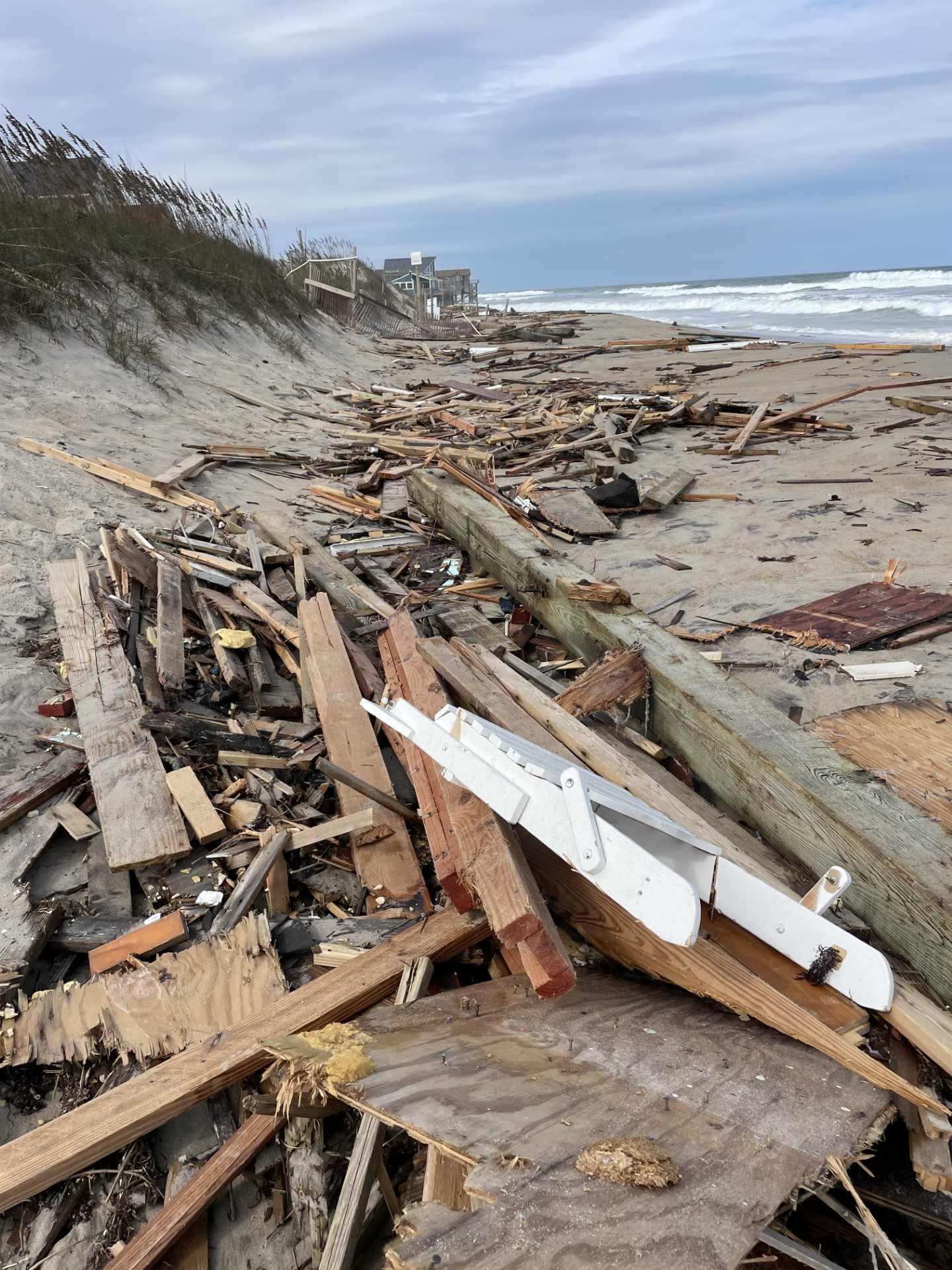Note: The above video notes a dead juvenile humpback whale that washed up on the beach in Corolla last week.
COROLLA, N.C. (WAVY) — The North Carolina Department of Natural and Cultural Resources has seen an uptick in humpback whales washing up on shores, the latest coming last week when a dead humpback whale washed up on the beach in Corolla.
Officials with Jennette’s Pier said she weighed approximately 60,000 pounds and was 33 feet, 7 inches long. They did a necropsy and they are still working to determine a cause of death.
Victoria Thayer, the North Carolina Marine Mammal Stranding Coordinator, said they found evidence of blunt force trauma on the whale, but they cannot say that was the cause of death until some more tests are processed.
Thayer said there has been an increase in humpback whales washing up on shores in recent years, and a large number of them have been found to have trauma caused by humans.
In late December 2024, a humpback whale was found washed up near the Bennett Street beach access, and earlier in that month, there was a report of a whale spotted near the Outer Banks that had been entangled in fishing gear.
Last year, two dead humpback whales washed ashore in Virginia Beach.
There was another dead humpback whale that was spotted floating off the Virginia Beach coast in February 2023.
“On the average, four to five humpback whales strand a year along the South Atlantic coast from North Carolina to Florida,” Thayer said. “This is the seventh humpback that’s stranded this year in South [Carolina] and North Carolina combined.”
She said not every one of those whales were examined due to varying levels of decay, but of the whales examined, about 40% had evidence of human interaction, either through a vessel strike or entanglement.
Thayer said humpbacks are under an unusual mortality event, something that the National Oceanic and Atmospheric Administration has been tracking since 2016, when the numbers began noticeably increasing.

When it comes to preventing incidents like this, Thayer said the best thing vessels can do is stay away when they spot a whale.
“Some whales, like the North Atlantic right whale, don’t have dorsal fins, so they’re very hard to see at the surface,” she said. “They can be just below the surface. If [vessels] stay under 10 knots in areas where you see whales, if vessels could do that, that would be really helpful and maybe help prevent injury to the whale and injury to the boats also, or ships.”
Thayer said one challenge they faced when performing the necropsy on the whale found Thursday was that it was already somewhat decomposed, so there were some organs they could not examine because of the level of decomposition. She said the sooner people report the finding of a dead animal, the sooner they can respond and the more they can learn.
“The sooner we can get to these individual animals, the more information we can learn from them,” Thayer said, “and we appreciate public input and interest.”
To report marine mammal strandings, injuries and entanglements, depending on where you are, call one of the 24/7 hotline numbers below:
- OBX Stranding Hotline: 252-455-9654
- Central NC Coast Stranding Hotline: 252-241-5119
- Southern NC Coast Stranding Hotline: 910-254-5713
For more information about the humpback whale unusual mortality event, click here.
The full interview with Victoria Thayer from the NC Department of Natural and Cultural Resources is available below:




















